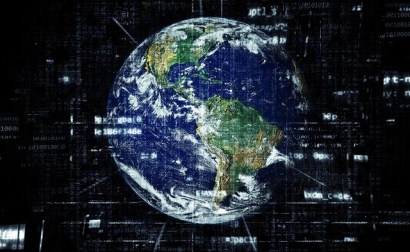
The Eco-Friendly Web Alliance said websites across a range of sectors - including e-commerce, hospitality, tourism and the public sector – should optimise and reduce the size of their pages to stop excess electricity being used.
The internet is understood to be responsible for around 10% of the world’s electricity use, much of which is sourced from fossil fuels.
The EFWA estimates the average website contributes two grams of CO2 emissions every time someone visits a web page.
For sites with high volumes of traffic, this results in potentially thousands of tonnes of CO2 needlessly being sent into the atmosphere.
The electricity consumed by the internet includes transmission networks, data centres and end-user devices such as computers, laptops, tablets and mobile phones.
Statistics on internet usage for April 2022 have been published by We Are Social and Hootsuite.
They show there are five billion internet users across the globe, 196 million more than last year. In the UK, 98% of the population is online, the equivalent of 66.9 million people. On average, each UK user spends 6hrs 15mins on the web per day.
Shane Herath, Chair of the Eco-Friendly Web Alliance, said, “It’s great so many people are online, but we need to wake up to the environmental impact of this.
“Tens of millions of people spending a huge part of their day online results in eye-watering amounts of electricity being used.
“In any other sector – transport, construction, oil production – the alarm bells would be ringing.
“But we’ve allowed the internet and its associated infrastructure to grow with abandon, and no-one’s ever stopped to consider the consequence on energy and climate change. The answer is definitely not to restrict access for obvious reasons, so we need to make the websites that people use more eco-friendly.
“That can be done by reducing page size, optimizing and cutting the amount of bloat. A few grams of CO2 may not sound like much, but when it comes to websites with high volumes of traffic, it soon equates to potentially thousands of tonnes needlessly going into the air.
“And with almost every UK resident using the internet to one extent or another, they are all unwittingly contributing to a damaging environmental situation which could easily be improved.
“The sustainability of the world’s digital infrastructure will be one of the next great challenges in the climate change fight, and businesses and public sector organisations in the UK would be wise to get ahead of the game.”

